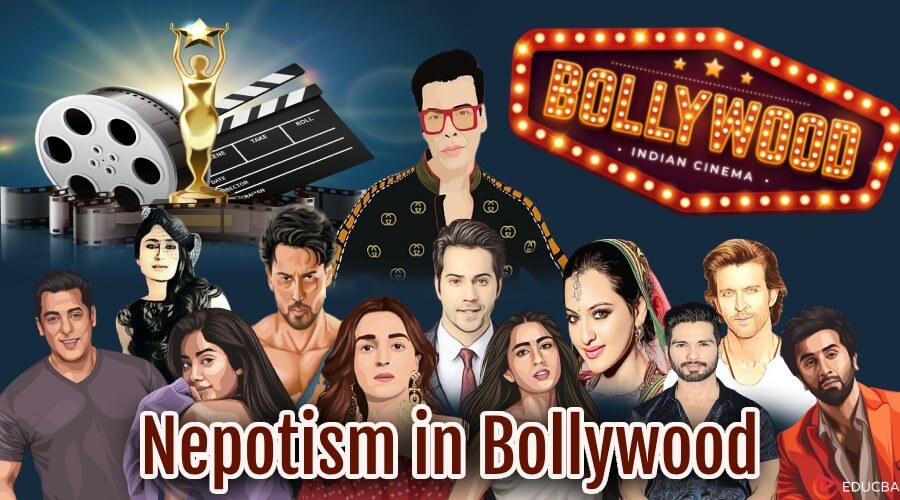Nepotism has long been a controversial topic in Bollywood, India’s largest film industry. While the debate has been ongoing for years, it reached a crescendo in 2020 following the tragic death of actor Sushant Singh Rajput. The incident ignited fierce discussions about the industry’s insider culture, where family connections and industry relationships are seen as gateways to success, often sidelining raw, unaffiliated talent. Four years later, in 2024, it’s essential to ask: What has changed in Bollywood’s nepotism debate?
1. A Shift in Audience Awareness
One of the most significant changes in 2024 is the heightened awareness among audiences. Thanks to social media and online platforms, viewers have become more critical of the dynamics that go into casting decisions. The once-tight veil of the industry has lifted, and now fans are unafraid to express their opinions when star kids are cast over talented outsiders.
Public opinion has played a significant role in shaping the careers of both insiders and outsiders. Star kids still enjoy certain advantages, but they are now more scrutinized for their skills and box-office performance than ever before. The audience demands talent and fresh faces rather than merely being satisfied with famous last names.
2. Emergence of OTT Platforms as Game Changers
The rise of Over-The-Top (OTT) platforms like Netflix, Amazon Prime, and Disney+ Hotstar has democratized the content landscape, giving newcomers a fresh stage to shine. Unlike traditional Bollywood, which is often influenced by production houses with generational connections, OTT platforms focus more on storytelling and talent than on legacy.
Many actors from non-film backgrounds, such as Jaideep Ahlawat (“Paatal Lok”) and Pratik Gandhi (“Scam 1992”), have become household names through web series. These platforms have allowed them to carve their own space, often bypassing Bollywood’s nepotism-powered machinery. This trend has somewhat diminished the stronghold of family-run film banners in favor of talent and merit.
3. New Generation of Star Kids Facing Accountability
The new wave of star kids entering the industry, such as Suhana Khan (daughter of Shah Rukh Khan), Shanaya Kapoor (daughter of Sanjay Kapoor), and Khushi Kapoor (daughter of Sridevi), are no strangers to the nepotism debate. In 2024, they are facing more accountability than their predecessors. They must prove their talent and win over an increasingly critical audience.
For instance, in the past, star kids could expect substantial media coverage and cushioned entry into the industry. Now, they face the challenge of distinguishing themselves as performers beyond their lineage. While their entry might still be smoother than others, their longevity is determined more by their acting prowess and ability to connect with the audience.
4. Rise of Outsiders and Self-Made Stars
The increasing visibility of outsiders, particularly on OTT platforms and smaller-budget films, has provided a counter-narrative to nepotism. Actors like Vicky Kaushal, Kartik Aaryan, and Taapsee Pannu have continued to solidify their place in Bollywood based on talent rather than connections. These self-made actors have become symbolic of merit and hard work, often being vocal advocates for equal opportunities in the industry.
Moreover, casting directors and filmmakers are now more open to fresh faces, and social media plays a huge role in the discovery of new talent. Audiences want authenticity, and the rise of self-made stars has proven that the demand for skill outweighs any familial advantage.
5. Changing Dynamics in Film Journalism and Social Media
In 2024, the role of film journalism has also evolved. Gone are the days when traditional media controlled the narrative surrounding star kids and Bollywood insiders. Social media platforms like Instagram, X (formerly Twitter), and YouTube have allowed independent voices, influencers, and even fans to contribute to the discussion on nepotism. Public sentiment can make or break an actor’s career faster than ever, as social media holds Bollywood accountable for every move.
This dynamic has pressured the industry to diversify and make casting decisions more transparent. As a result, even those who benefit from nepotism have to show a keen understanding of the audience’s expectations and align with the rapidly shifting culture.
6. More Conversations, But Nepotism Still Exists
Despite all these changes, nepotism hasn’t disappeared from Bollywood. Star kids still have easier access to opportunities, better networking, and more significant media exposure. Production houses led by industry veterans continue to favor familiar faces. However, what has changed is the narrative around it. The conversation around nepotism is more open, with both insiders and outsiders discussing the challenges and privileges that come with being a part of the industry.
Prominent stars like Alia Bhatt and Ranbir Kapoor, who come from film families, have also acknowledged the existence of nepotism but stress that ultimately, talent and perseverance shape long-lasting careers. While this recognition is a step forward, the structural barriers that prevent true diversity still linger.
Conclusion: A Long Road Ahead
In 2024, Bollywood’s nepotism debate has evolved. While the industry hasn’t completely shaken off its preferential treatment of insiders, significant progress has been made in giving talent a platform to shine, irrespective of family background. Audiences are now more discerning, demanding, and vocal about what they want to see on screen. With OTT platforms continuing to disrupt the traditional film ecosystem and newcomers proving that talent can transcend family ties, the industry is slowly but surely embracing change.
Nepotism may never fully disappear, but Bollywood is learning that in 2024, merit speaks louder than connections.



